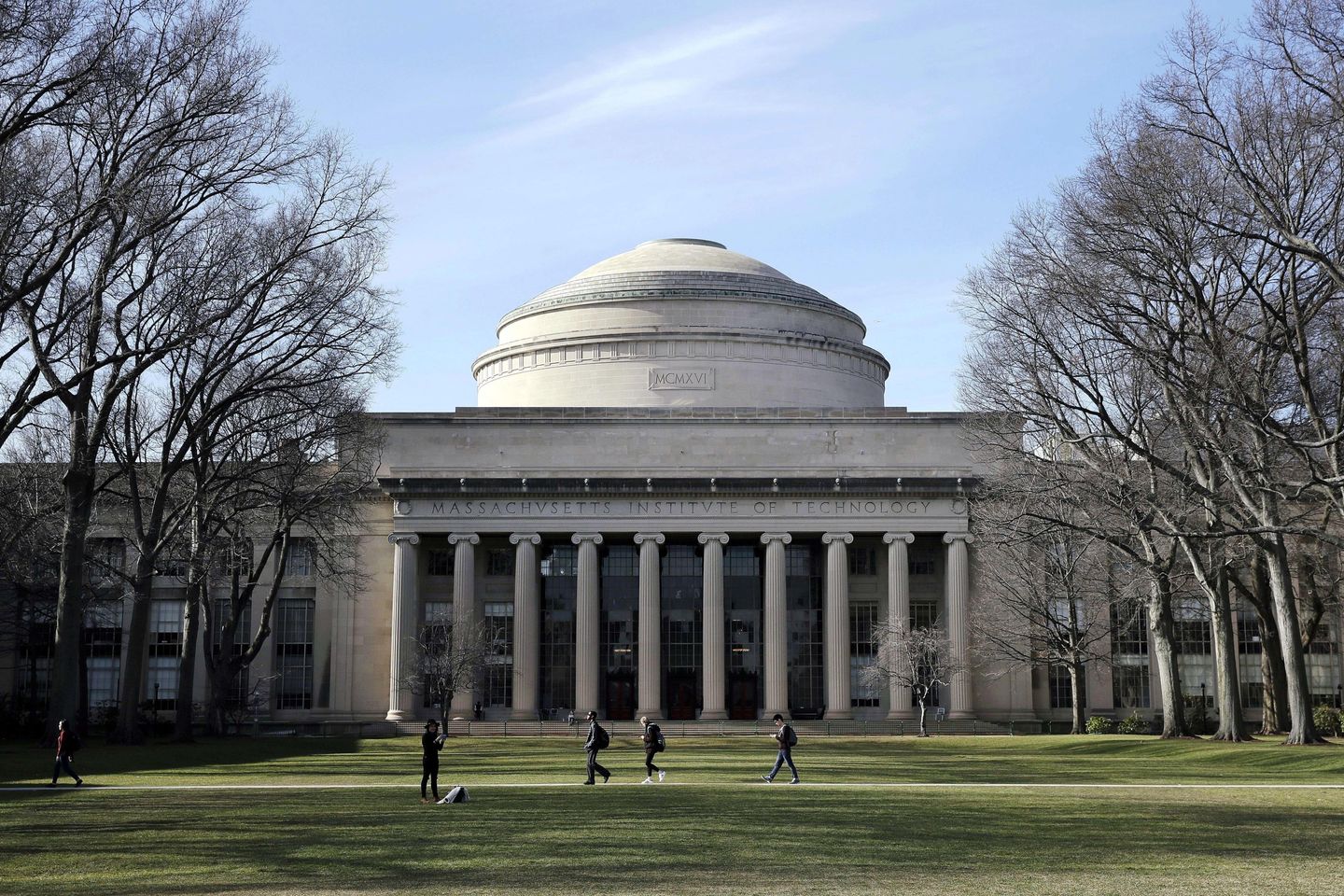
A lawsuit filed Wednesday against the Massachusetts Institute of Technology accused university officials of “standing idly by” as the campus became a hotbed of antisemitism, prompting a Jewish graduate student to abandon the Ph.D. program in the face of relentless harassment.
The Brandeis Center Coalition to Combat Antisemitism, whose members include MIT faculty, students and alumni, said MIT President Sally Kornbluth’s lack of decisive action permitted antisemitism “to dominate campus life for Jews and Israelis” following the Oct. 7, 2023, Hamas attack on Israel.
The complaint cited incidents including campus protests calling for violence against Jews worldwide, celebrations of the Hamas attack, classes interrupted with antisemitic chants, Jewish and Israeli students blocked from certain areas of campus, and “terror maps” pinpointing Jewish gathering spots.
The coalition sued MIT and Michel DeGraff, a tenured linguistics professor accused of harassing and endangering an Israeli faculty member and Jewish student by targeting them on social media and in emails.
“In the absence of moral leadership and meaningful action, the MIT campus was turned into a breeding ground of anti-Semitic and anti-Israeli hate and hostility that emboldened students and professors to harass and discriminate against Jews and Israelis without restraint,” said the lawsuit filed in the U.S. District Court for Massachusetts.
Kenneth Marcus, Brandeis Center chairman and former assistant secretary of education for civil rights in the first Trump administration, called MIT’s handling of campus antisemitism “a textbook example of neglect and indifference.”
“Not only were several anti-Semitic incidents conducted at the hands of a professor, but MIT’s administration refused to take action on every single occasion,” he said in a statement. “The very people who are tasked with protecting students are not only failing them, but are the ones attacking them.”
The center settled a lawsuit in January against Harvard in which the university agreed to adopt the International Holocaust Remembrance Alliance definition of antisemitism, recognize Zionism as central to Jewish identity and explicitly make targeting Jews and Zionists a violation of school rules.
“In order to eradicate hate from campuses, we must hold faculty and the university administration responsible for their participation in —and in this case, their proliferation of — anti-Semitism and abuse,” said Mr. Marcus.
MIT was a breeding ground for hatred where students shouted for violence against Jews, blocked Israelis and Jews from entering areas of campus, distributed “terror maps” promoting violence at campus locations deemed Jewish, and more.
Learn more: https://t.co/zRIwDNGcbt
— The Brandeis Center (@brandeiscenter) June 25, 2025
In addition to the coalition, the named plaintiffs in the MIT lawsuit are mathematics instructor Lior Alon and former Ph.D. computer-science student William Sussman, who said university officials failed to protect them from harassment by Mr. DeGraff. Both have also sued Mr. DeGraff for defamation.
The Washington Times has reached out to MIT and Mr. DeGraff for comment.
Mr. Alon said the professor targeted him by sharing his name, image and edited videos on social media, as well as disclosing his previous service in the Israel Defense Forces. The professor also criticized him in a May 2024 article in the French monthly newspaper Le Monde diplomatique.
Mr. Alon sent an email to Ms. Kornbluth detailing the harassment, but she never responded, the lawsuit said.
As a result, Mr. Alon said he was confronted by hostile strangers in various public locations, prompting him to move his child to an off-campus day care. He has applied for more than 50 tenure-track positions at other institutions, but has been rejected.
“The anti-Semitic public exposure Alon was subjected to has also impacted his search for a position as a tenured professor,” the lawsuit said. “Despite his extraordinary academic, research and professional credentials, he was denied positions, again and again, that a candidate with his credentials would otherwise have been offered.”
The lawsuit said Mr. Sussman left the Ph.D. program in January after being targeted by Mr. DeGraff.
The episode began in November when Mr. Sussman complained on X about an MIT professor posting “extremely dangerous rhetoric” about Jewish student groups funding a “mind infection.” In response, Mr. DeGraff posted messages on X targeting Mr. Sussman by name, the lawsuit said.
The student said he sent an email in November to Mr. DeGraff and top administrators saying, “Professor DeGraff: Please leave me alone. Will Sussman,” but that the professor continued to post messages about him on X.
Mr. Sussman filed a complaint, but a university investigation concluded that the professor had not engaged in antisemitic conduct by using the term “mind infection,” telling him that “the term ‘mind infection’ refers to ‘Israeli racist education,’” which falls under the category of criticism of the Israeli government, the lawsuit said.
“The fact that the Manager of Investigations for MIT’s IDHR [Institute of Discrimination and Harassment Response] Office does not recognize blatant anti-Semitism exposes the level of institutional blindness and apathy at MIT when it comes to anti-Semitism,” the complaint said.
In an automated reply email, Mr. DeGraff said he’s no longer on the linguistics faculty and has been designated “faculty at large” in MIT’s School of Humanities, Arts and Social Sciences.
He also linked to a Nov. 14 letter from Agustin Rayo, dean of the Humanities Department, telling Mr. DeGraff he had been temporarily removed from the linguistics section over public attacks on the university for rejecting his course proposal.
“By creating a reasonable expectation that those who displease you are at risk of being targeted, you have chilled speech within the Linguistics Section and created an environment of intimidation that interferes with the Section’s essential functioning,” said Mr. Rayo.












